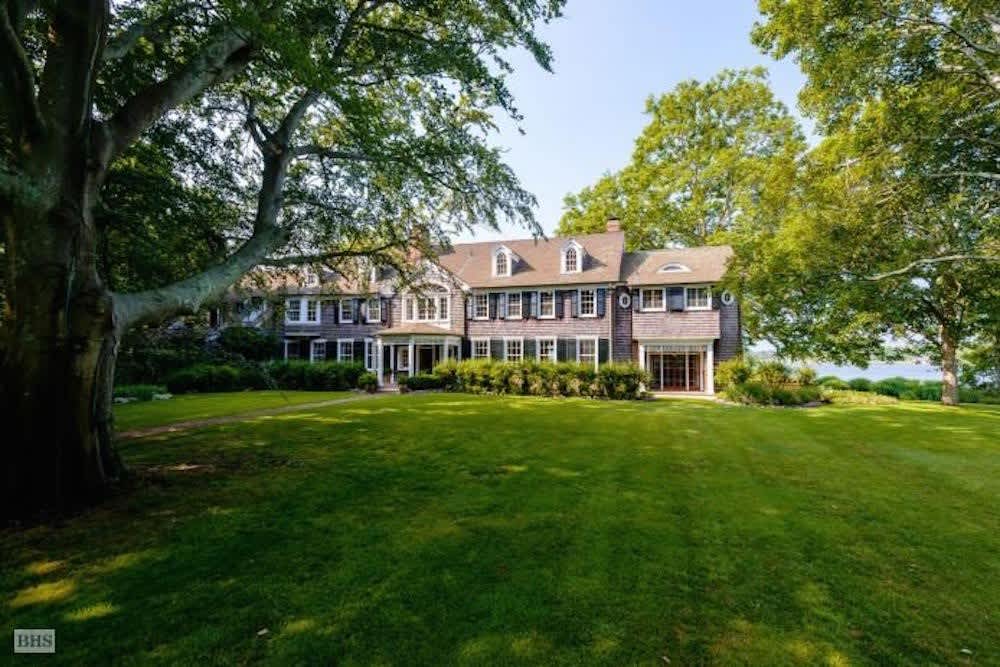
Wealthy New Yorkers fleeing the city are driving up the prices of rentals in the Hamptons and Hudson Valley, with rates more than tripling for some properties.
As New York imposes strict stay-home guidelines and the number of coronavirus cases skyrockets, New Yorkers who can afford it are decamping to more rural locales. Brokers say they’re getting barraged with calls from families wanting rentals immediately, some for two weeks, some for up to a year.
“This is unprecedented,” said Delyse Berry, of Upstate Down, a Hudson Valley real estate advisory and management firm. “It’s like a panic. I have never placed so many people in rentals in one week, and at these prices, ever. Even in the summer.”
Berry said homes that would typically rent for $4,000 a month during the winter and early spring are now going for up to $18,000 for the month of April. She said the average rental period is eight weeks, though some families are renting for several months or even a year.
Berry said she received a call earlier this week from a family that wanted a house that night.
“She said, ‘We are leaving the city now, we need a house for tonight otherwise we will stay at a hotel until we find a place.’ “
In the Hamptons, March is typically the off-season, with low rents and little demand. Now, however, some homeowners are getting rates for March that are as high as asking rates for August.
Gary DePersia, a leading Hamptons realtor with Corcoran, said one oceanfront home just rented for $100,000 for the month of April to a family that wanted to flee the city. “People are calling and saying ‘I need a rental, and I need to start today,'” he said. “For the off-season, this is unbelievable demand.”
DePersia said “prices are all over the map” depending on the property, but that many are looking to rent for two months. Christopher Covert, a broker with Saunders in the Hamptons, said houses that in the winter months would rent for $5,000 a month are getting more than $30,000 for the last two weeks of March.
“There is just huge demand and a contraction of inventory,” Covert said. “We’re seeing pricing similar to July or August. Before this, an April rental or mid-March rental really didn’t exist.”
Brokers insist homeowners aren’t gouging or exploiting a health crisis, but simply meeting demand. Yet homeowners with attractive turnkey homes to rent outside the city have become unlikely winners from the virus outbreak.
Brokers say that in some communities there are long waiting lists for renters looking for immediate leases. Berry of Upstate Down said that in the Hudson Valley she’s scrambling to find more homes to rent, since many of the rentals in the area are owned by New York City weekenders who now want to use the houses themselves.
“We’re having to get creative to find properties,” she said. In one case, she helped a homeowner who planned to rent later in the year prepare the home for immediate rental.
Covert at Saunders said demand is so heavy that there are growing cases of fraud on some websites that offer seasonal rentals. He said people are posting fake listings and collecting rent for March or April. After the renters pay for the rent or deposit, they discover the listing is fake.
“People who rent need to be extra careful right now,” he said.
The influx of city residents to the Hamptons and smaller towns upstate is already putting a strain on the local infrastructure, which didn’t plan for March crowds. Corcoran’s DePersia said King Cullen, a popular grocery store in Bridgehampton, was struggling to restock.
“The whole fruit and vegetable section was decimated,” he said. “You can’t find an avocado or banana anywhere.”
Even though the wealthy are fleeing the virus and the congestion of New York City, they may end up just transferring both to the Hamptons and other area communities, essentially seeding the virus in new locations.
Saunders’ Covert said he worried that the Hamptons hospitals, which aren’t equipped for large numbers of patients, could be overwhelmed by cases.
“The Hamptons is no Shangri La or panacea,” he said. “The medical system is geared to a small year-round population and now we’re seeing numbers more like July and August. If the stuff hits the fan I don’t know if the regional medical system can support the masses of people.”


